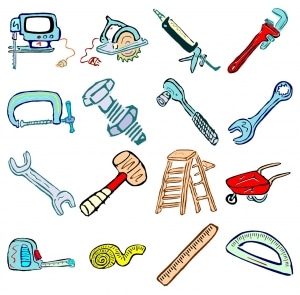The Best Home Repairs For Sellers to Make in 2021
Some say that there are two types of home repairs in the home selling process: negotiable and non-negotiable. The reality is, you don’t have to fix anything in your home prior to selling it. You can sell it “as is”. However, you must abide by the Florida laws concerning disclosure. This means you have to inform buyers of all defects and dangers that may be present on and within your property.
However, if you decide against doing the repairs, you might have to wait longer for a buyer or accept selling it for a lower price. If your price is too high and the building has too many problems, it could stay on the market indefinitely. By knowing the most common repairs sellers make to close the deal, you can pinpoint your best investment options.
Within the first few weeks of the contract, your house will probably undergo at least one inspection by a private inspection service like Divinity Home Inspection Services. If the buyer was approved for a VA or FHA mortgage loan, you will also receive an appraisal by a VA or FHA certified appraiser.
Appraisals and Home Repair
Federally funded lenders will refuse to give a loan to buyers if certain problems in the home have not been rectified before the sale, and VA and FHA mortgage loans make up about 20% of the market. (JCHS of Harvard University, 2020)
If you receive a VA or FHA appraisal and the repairs aren’t too costly, you should definitely consider fixing them. Even if the buyer walks away, once completed, you can market your home by promoting that your property meets the VA or FHA property standards.
But there are some conditions that may disqualify you right away for the strict FHA requirements like living near an airport or near heavy traffic. So don’t fret until you receive that list of appraisal conditions and find out if the qualifications are within your control.
These conditions highlight areas that affect:
- Safety
- Security
- Soundness
According to the U.S. Department of Housing and Urban Development, FHA renovations requirements include but are not limited to:
- Repairs
- Roof moisture
- Plumbing
- Frayed or exposed wires
- Cracked or broken glass
- Termite damage
- Rotting structural material
- Damaged walls or ceilings
- Poor craftsmanship
- Replacements
- Roof
- Water heater
- Installation
- Carbon monoxide detectors
- Smoke detectors
- Handrails
- Countertop
Potential Repair Requests by Buyers
After a home inspection, the prospective buyer might ask for repairs to be made before the deal is closed. In fact, you might even receive a scroll’s length of renovation requests.
Let’s take a look at the most common repairs that might be requested from a seller before they sell:
- Electrical issues
- Plumbing (especially leaks)
- HVAC system issues
- Foundation problems
- Roof damage
- Pest infestations
- Moisture and mold
Repairs are not required if the home purchase involves a conventional loan. However, they might be worth the trouble if it means a difference between selling your home now or later.
Cosmetic upgrades may be requested too. It’s polite to make these fixes if they are minor and do not cost much to complete. However, it’s always within your rights to say no. These repairs may include:
- Peeling or chipped paint
- Holes in the wall
- Leaky faucet
- Damaged floors
Negotiation Tactics
If you don’t have the money to cover major repairs and it impacts your home’s perceived value, be prepared to compromise.
There are two tried and true ways to do this:
- Credit the buyer the amount for the repair, reducing the cost of your home.
- Lock in the sale, including the added cost of the home upgrade. This reimburses you and allows the buyer to pay the repair cost over time along with their mortgage.
By offering credit early in the game, you don’t lose money for repair costs in case the buyer walks away. At the same time, you don’t lose the buyer by giving them an outright “no” regarding the repair issue. If the buyer is insistent on a renovation that isn’t necessary, an agreement to include the renovation costs in a binding contract ensures your investment.
Overall, a buyer’s home inspection is not an open invitation to force you to fix your home, though it is used in that way frequently. Before you decide on potentially requested home repairs, consult your real estate agent and make decisions wisely.
Sources and further reading:
- U.S. Department of Housing and Urban Development. “Handbook 4000.1, FHA Single Family Housing Policy Handbook, Condominium Project Approval content,” Page 183, 583. Accessed Oct. 27, 2019.
- https://www.homelight.com/blog/what-home-inspectors-look-for/







Leave a Reply
Want to join the discussion?Feel free to contribute!